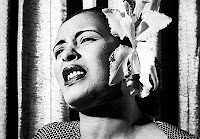 By Jule Styne & Sammy Cahn
By Jule Styne & Sammy Cahn1947
The lovely Doris Day introduced this tune, written for her to perform in her debut motion picture, Romance on the High Seas. Ms. Day was one of five people to subsequently record the song the following year, and her version was the most successful, rising to #2 on the Billboard charts.
Lyrics:
You sigh, the song begins,
You speak and I hear violins.
It's magic.
The stars desert the skies,
And rush to nestle in your eyes.
It's magic.
Without a golden wand or mystic charms.
Fantastic things begin when I am in your arms.
When we walk hand-in-hand,
The world becomes a wonderland.
It's magic.
How else can I explain
Those rainbows when there isn't rain?
It's magic.
Why do I tell me myself
These things that happen are all really true,
When in my heart I know
The magic is my love for you?
Recorded By:
Jerry Vale
Tony Martin
Dick Haymes
Sarah Vaughan
Keeley Smith













